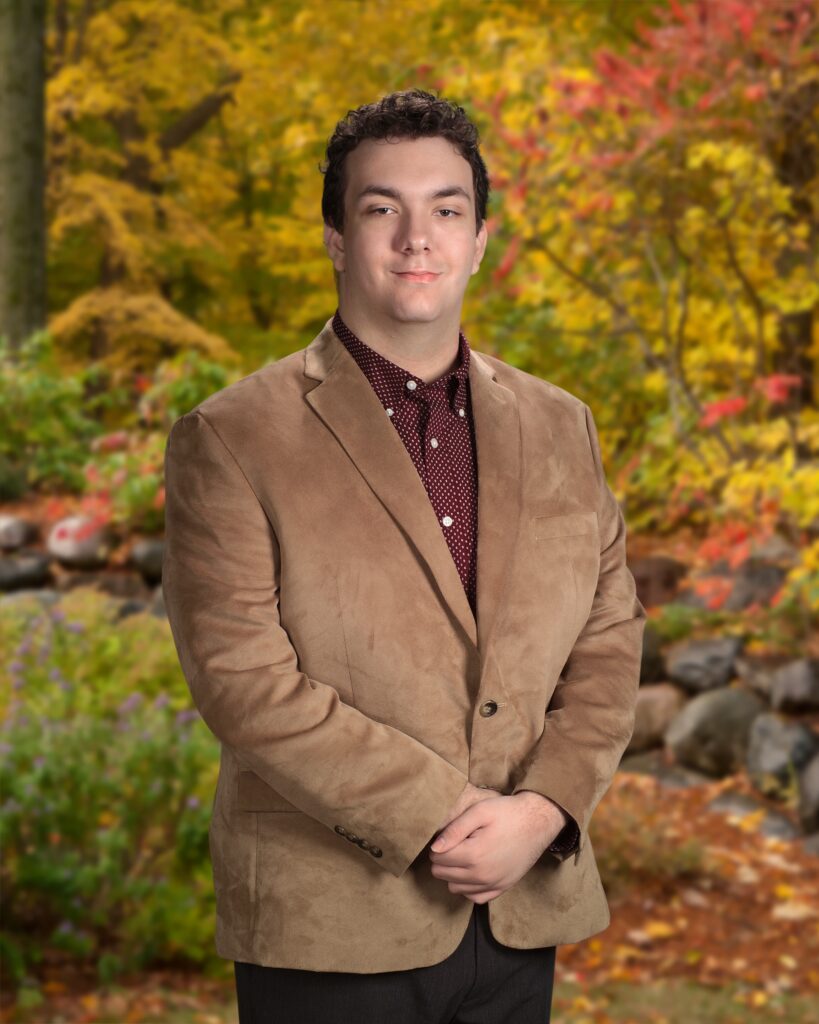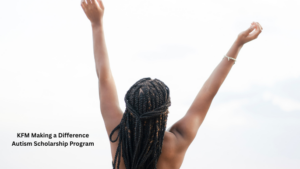This guest post is by David Sullivan, a young man who attends Ohio Northern University. He is an advocate for the Spring 2025 Making a Difference Autism Scholarship via the nonprofit KFM Making a Difference started by me, Kerry Magro. I was nonverbal till 2.5 and diagnosed with autism at 4 and you can read more about my organization here.
Autistics on Autism the Next Chapter: Stories You Need to Hear About What Helped Them While Growing Up and Pursuing Their Dreams was released on Amazon on 3/25/25 and looks at the lives over 75 Autistic adults. 100% of the proceeds from this book will go back to supporting our nonprofits many initiatives, like this scholarship program. Check out the book here.
Growing up in a low-income single-parent household with autism was hard. I lived alone with nobody but my mother to guide me through the toughest times in my life. Throughout my childhood, my father, who had multiple sclerosis, was bedridden and largely non-verbal. When my father died, my uncle Albert stepped in and filled the role of a father figure for me. I still have fond memories of him giving me valuable life advice, taking me to the zoo, and pushing me to step out of my comfort zone and try new things.
Making friends in school was not easy either. I often had different hobbies from my neurotypical peers. While many of my peers were more involved with sports and mobile games, I was more excited by my niche special interests, like creative writing, science fiction, history, and paleontology. However, I was able to find some of my closest friends online. Much like me, many of my friends were also less socially adept individuals who were interested in more “nerdy” topics, and we were able to bond with each other over our shared feelings and overlapping interests. Some of my most nostalgic memories include me talking to my friends about our favorite superheroes and arguing over who would win in a fight.
When I thought I could not make real life friends in high school, that also changed when I went to college. During my last semester at Rhodes State College, where I completed my associate’s degree, I was paired with three other students to complete my capstone project. One of my project partners was someone who was also autistic and had dealt with similar feelings of loneliness and being misunderstood. When I made friends with this person, I realized that I was not so different as I thought, and that there really were others out there who understood me and could relate to my experiences beyond my computer monitor. This realization only further grew when I first came to Ohio Northern University and met other neurodivergent people who would eventually become some of my closest friends. We would later all be united by an oath of brotherhood when we joined the same fraternity, Phi Mu Delta, all in the same semester.
Joining this fraternity gave me the opportunity to give back to my community and help others in need who may experience financial difficulties as my family did when I was growing up. For example, I have gone several times over two years to the West Ohio Food Bank with my brothers to prepare food parcels for underserved households. In addition to joining a fraternity, I also had the pleasure of joining ONU’s Student Association for Disability Advocacy (SADA), which strives to make the campus a safe space for students with disabilities as well as to promote awareness of issues relating to disabilities and ways to support those who experience them. This organization has become a place for me to connect with others who share similar struggles as well as an opportunity to help other autistic students not experience the same feelings of loneliness and being misunderstood that I did whilst trying to make friends in high school.
I aspire to continue my work of serving underserved communities and neurodivergent individuals after I graduate from college and throughout my lifetime. My program of study plays a major role in that. Once I earn my bachelor’s degree in Marketing and Writing & Multimedia Studies, I will seek to create inspirational and educational media that will shine light on social issues impacting our society as well as teach audiences and change their perceptions of what it is like to be neurodivergent. By showcasing the perspectives of people with autism and illustrating how they have used their gifts in transformative ways, my work can help reduce the stigma behind the word autism and turn it into something positive. I have begun accomplishing this goal as the Social Media Chair of ONU SADA. Each month, we spearhead a social media and flyer campaign to educate ONU students about different disabilities. This month, April, was Autism Awareness Month, and our campaign focused on facts and trivia about the autism spectrum that not everyone knows about.
I have gone through many trials over the course of my life, but I faced them head-on and overcame them through perseverance and positivity. Here is my advice to you. Being neurodivergent is not always easy, but you are not alone, and there will always be people who can support you and help you get through your hardest times. Never compromise your hobbies and values or let other people try to change you or tell you what you can or cannot do. You are an individual with your own traits that make you unique and who you are, and being autistic is an important part of that.
Kerry Magro, a professional speaker and best-selling author who is also on the autism spectrum started the nonprofit KFM Making a Difference in 2011 to help students with autism receive scholarship aid to pursue a post-secondary education. Help us continue to help students with autism go to college by making a tax-deductible donation to our nonprofit here.
Also, consider having Kerry, one of the only professionally accredited speakers on the spectrum in the country, speak at your next event by sending him an inquiry here. If you have a referral for someone who many want him to speak please reach out as well! Kerry speaks with schools, businesses, government agencies, colleges, nonprofit organizations, parent groups and other special events on topics ranging from employment, how to succeed in college with a learning disability, internal communication, living with autism, bullying prevention, social media best practices, innovation, presentation best practices and much more!














